Whether you’re new to the “cat world” or you’ve had a cat before, you know that it’s a life chapter in which you get a lot of love, but you also have a lot of responsibilities. The goal of each of us is to give our pets the best possible care. Wanting to succeed in that, have you ever wondered if you give your cat the right nutrition? Choosing a pet food can be a heavy task. The cat’s need for diet changes from day to day. That’s why we have to be careful and follow its reaction to changes in the menu.
The market today is filled with many different kinds of cat food. The advice you get from friends and vets on which one is the best for your cat can be confusing. In addition to these tips, it’s very important to pay attention to the easily noticeable symptoms that a cat exhibits when it comes to food. You should be aware of these symptoms in time so you could take good care of them.
In the section below we provide you with 6 signs you need to improve your cat’s diet:
1. Sensitive stomach
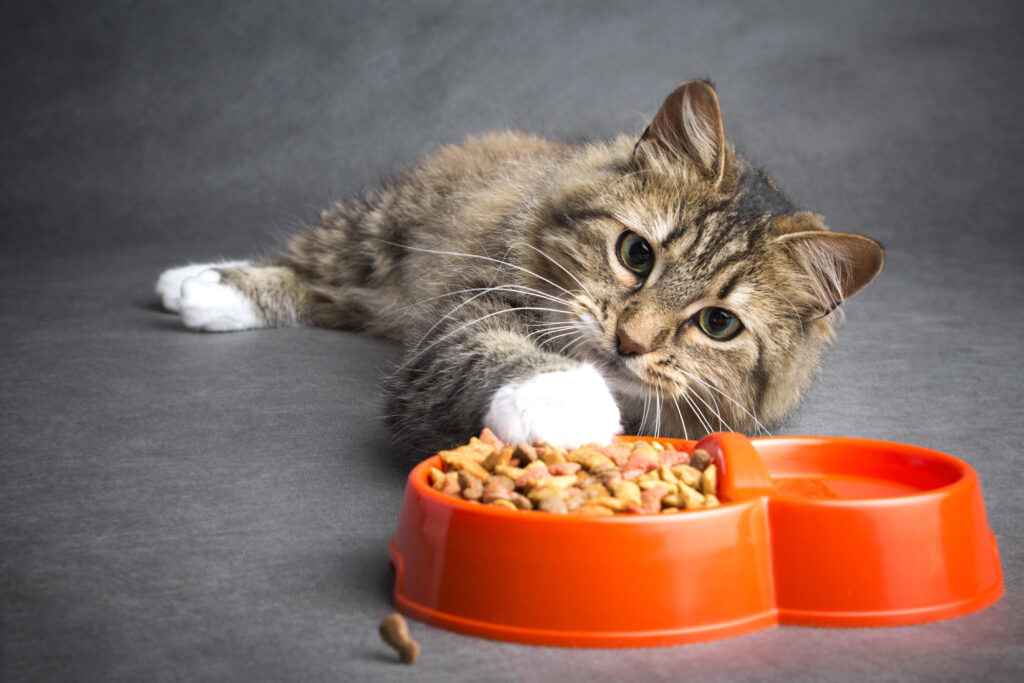
If your cat vomits and has diarrhea, don’t worry, it probably has a sensitive stomach and it clearly shows food intolerance. There’s no unique formula in a cat’s diet that would suit each one of them. Some are more upset about certain ingredients than others.
If you notice these symptoms with your cat, that means that it’s probably sensitive to certain substances from food. Do you feed your cat well or not, its poo could tell you a lot about that. If it’s moist and has a tang odor, it’s considered to be dehydration.
In this case, it’s advisable to make a change in her nutrition from dry to canned and to give your cat as much water as possible. If the poo is watery and soft, you need to pay more attention to its diet. In any case, you should take your pet to the vet who would determine if the food is the only problem of her sensitive stomach.
2. Dry fur
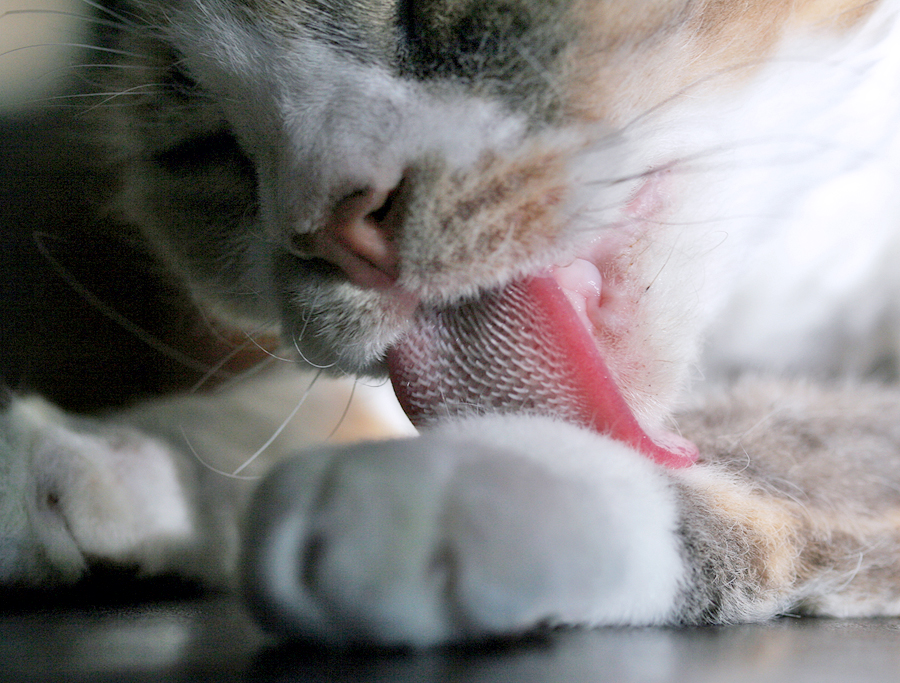
One of the most noticeable signs that your cat needs a better diet is through its coat. Your cat’s fur should be shiny and soft. If it’s not like that, then it’s time for a red alert. If your cat doesn’t get the right ingredients from the food, you will notice frequent hair loss, dryness, and loss of coat shine. Probably the nutrition is either of poor quality or doesn’t have the necessary vitamins and ingredients that your pet needs.
For its fur to be healthy, it’s recommended that food contains high levels of protein and fatty acids such as omega-3 and omega-6. Therefore, we advise you to read all the food ingredients before buying them for your cat so you could make the right choice.
3. Signs of apathy
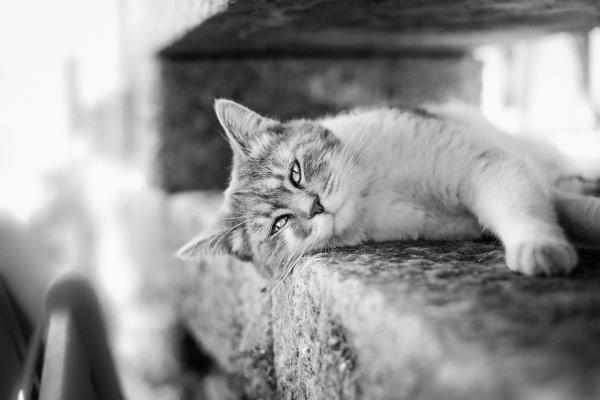
Are you used to see your cat being playful, active and full of life, and suddenly is getting the complete opposite behavior? Take it easy, your kitty is just fine. Any change in a cat’s life such as a change in the environment, sand or food can affect its behavior. If it had surgery, then depression is a completely accompanying reaction in its recovery.
However, if it’s suddenly indifferent and not as lively as before, make sure you give your cat food that has everything it needs. To help your pet gets through this period of lethargy, choose nutrition that has antioxidants, this will make your cat feel much better. Consultation with a vet is always a good idea, so even with this problem, you can hear and practice useful advice.
4. Weight problems
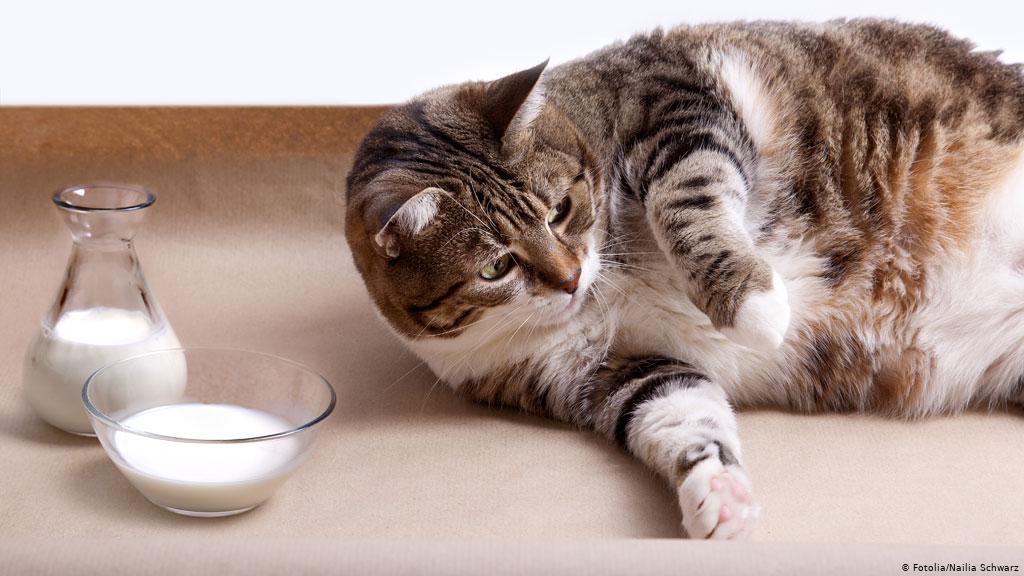
People often make mistakes when it comes to food not only for pets but for themselves as well. The more you eat doesn’t mean that you will be healthier, it’s quite the opposite! More and more cats are struggling with weight problems and it’s not their fault, it’s ours.
Overmuch feeding of a cat can lead to many health problems, as well as affect its lower daily activity and mobility. The ideal recipe is – use the right food but in smaller quantities! If you feed your cat with food that contains minerals, proteins, carbohydrates that it needs for a strong immune system, then the amount doesn’t matter.
An overweight cat should eat less caloric food to establish balance. The veterinarian’s answer to the question of what is the perfect weight of a cat is: “You should feel the cat’s ribs, but they should never be seen.”
5. Rash/itchiness
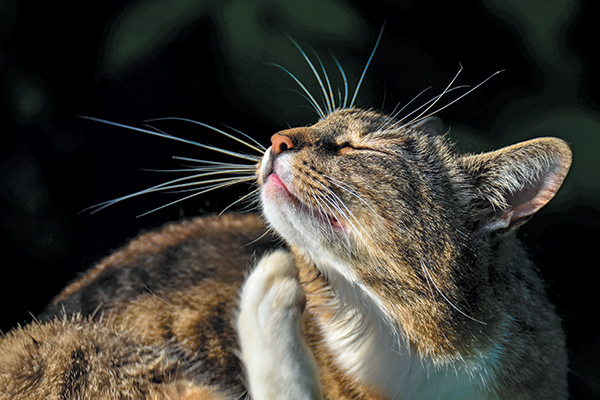
If your cat has received all the necessary vaccinations and is still itching, consider the food it eats. Allergies are not common for cats but they certainly exist. Maybe your cat is allergic to some ingredients from the food. To dispel this idea, you need to visit a veterinarian and do all possible examinations. If it turns out that your pet is allergic to some meals, it’s not the end of the world.
Today we have so many different types of food with different ingredients, so it won’t be hard to find an alternative. It’s advised to choose nutrition with low allergens in this case. In addition to this, your vet can prescribe your cat’s diet and tell you which ingredients to avoid.
6. Senior cats
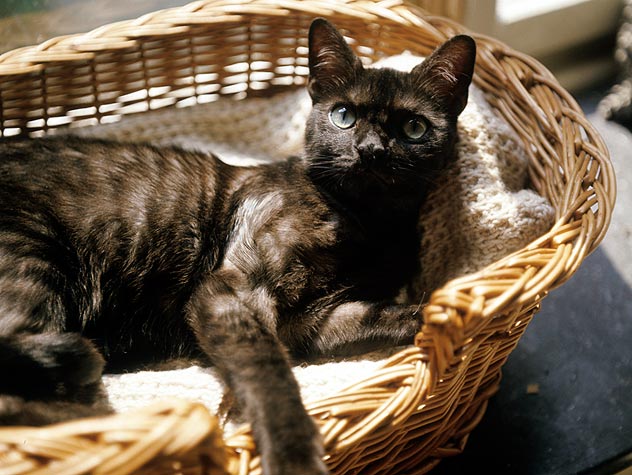
As days go by, our cats are getting older and change, along with that their food needs a change as well. Pets can be classified as “older” when they turn 5 years old. It’s quite clear that we cannot give the same food to kittens that are developing and physically active and to those that are mature and calmer. At each age of the cat, special emphasis must be placed on food. Many factors influence the right choice of cats’ food.
Depending on whether they are spayed or not, whether they live in an apartment or yard, etc., cats have different needs. For older cats, we need to choose a diet that has fewer calories and more antioxidants. Food must be of high quality with protein and easy to digest. The number of meals should be smaller and more frequent. Fat and nutrients are not needed by your pet in old age.
Choosing the right diet for your cat will result in its better and longer life. Giving better quality foods, rich in nutrients will make your cat’s immune system much stronger. Sometimes it’s not simple and easy to strike the right balance in your pet’s diet. We hope that with this article, guided by a series of tips from Floppycats, we have managed to remove your doubts and answer the questions you had when it comes to the cat diet



